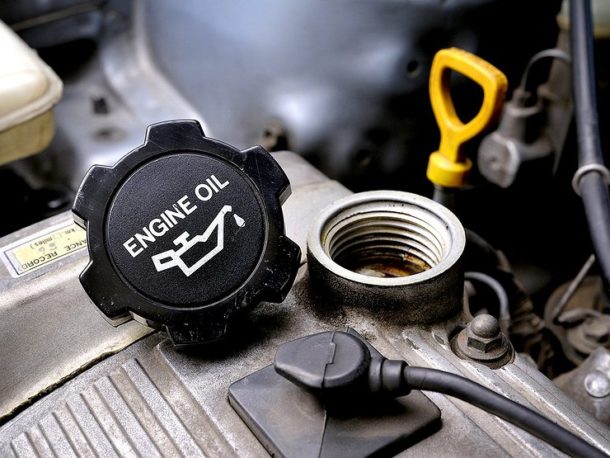If you’re a truck driver, then you know the importance of keeping your engine as clean as possible. That’s why most drivers use 0w-30 or 0w-40 Truck Oil to keep their engine running smoothly and protect it from corrosion. But what is the difference between these two types of oil? And which is better for your vehicle? DavesOilChange answers all of those questions below!
The first thing that we need to mention about this topic is that there are many different grades and weights available for oil. The weight refers to how much thickening additives were used in the petroleum distillate during production; with higher numbers meaning more thicker ingredients were added. The weight determines how well an oil can withstand high temperatures and how well it can resist viscosity breakdown.

Source: autorepublika.com
What is 0w-30 oil for Truck Engines?
0w-30 oil is a winter weight, low viscosity synthetic motor oil that’s formulated to provide the highest protection for your engine during cold weather. While 0w-20 oils are made to operate at warmer temperatures (up to 176°F), thicker 0w-30s work better in lower temperatures and offer more lubrication than their thinner counterparts. That means they’re perfect for harsh winters where average temperature ranges from 14 degrees Fahrenheit up to 30 degrees Fahrenheit (-14°C – 15°C). It also works well when you have extremely hot summers that cause summer grade oils thin out too much and expose your truck’s internal parts of damage or wear & tear. In addition, most drivers choose an 0w-30 oil to avoid any risk of over-lubrication. If you’ve ever experienced a low viscosity engine oil that’s too thin or runny, then you probably know how important it is to make sure your winter grade truck oils are the right weight for cold weather.
What does 0w-40 Oil do?
0w-40 Truck Oil has a very versatile range and its performance can be used in most types of climates throughout the year – from extremely hot summers down to frigid winters. So if you’re still on the fence about which weight suits your climate better, going with an 0w-30 vs 40 could be beneficial for drivers who need more protection during summer months but want something lighter than a straight 40 weight in winter.
As for viscosity, an 0w-40 is thicker than a straight 40 but not nearly as thick as the 0w-30’s. That means you’ll see better results with cold starts and performance under extreme conditions when using this oil grade. Finally, it also helps to know that most heavy duty truck manufacturers recommend or require their drivers use either a 30 or 40 weight oil – so make sure to check your owner’s manual.

Source: autoguide.com
Temperature Range Difference
When you’re driving, your engine oil has to work harder than normal because it’s constantly moving around and keeping all of the parts in place. That means operating at high temperatures is inevitable – especially when idling or sitting still for long periods of time. So if there are heavy loads involved (like hauling or pulling), then you should expect even hotter temps that can cause an inferior weight oil to break down sooner rather than later.
All three weights will flow well under cold conditions but thicker oils like 0w-30s offer more protection during hot weather by staying stable longer. As a result, 0w-40 Truck Oil works best between 130°F up to 176°F while maintaining their thickness throughout use instead of thinning out too much.
The takeaway here is that 0w-40 oil can be used year-round in just about any climate – but they’re not recommended for use in extreme cold conditions because the engine won’t reach optimal operating temperatures when it’s really chilly outside.
Oil Change Intervals
Another difference between these two weights is the frequency of oil changes needed to maintain optimum performance and prolong your vehicle’s life expectancy. With thinner oils like a straight 30 weight, most drivers only do an oil change every 5000 miles or so (and some even wait until their car tells them when it needs one). That means you’ll have fewer chances of running into problems with lower grade truck oils since less dirt will build up inside your engine compartment over time.
However, if you’ve chosen an 0w-40 weight oil to suit your climate – then it’s a different story. Since this grade is thicker than the other two weights, it’ll take longer for dirt and debris build up around internal engine parts until they wear down and need replacing (if ever). So if you’re looking to keep your vehicle running as long as possible without any expensive repairs or replacements needed on average, then we highly recommend going with an 0w-30 vs 40 during hot weather conditions.

Source: pexels.com
Can I use 5W 40 instead of 0W 30?
Absolutely not! Remember, when it comes to oil grades like 0w-30 and 0w-40, the number after “0” refers to how much thickening additive was used in the distillate. So while you can use a thicker 40 weight grade during warm months or seasons (or if your manufacturer requires that), using something with less viscosity is never recommended – especially since most engines are designed for either an 0W 30 or 40 weight engine oil.
Conclusion
One of the main reasons why truckers choose to use either an 0w-30 or an 0w-40 oil is because it’s specifically made with diesel engines in mind, which are different from gas engines. Gas engine oils are typically thinner than diesel motor oils due to their high compression ratio – they need less thickness between their parts so that hot spots will be reduced while increasing fuel efficiency. However, diesels have lower compression ratios since they run on liquid petroleum products instead of gasoline; therefore more lubrication is needed between metal parts by using thicker grades of oil like 40 weight or even 50 weight if necessary. While both types can provide adequate protection in different seasons, using the proper oil for your vehicle will ensure that it runs smoothly all year long.




